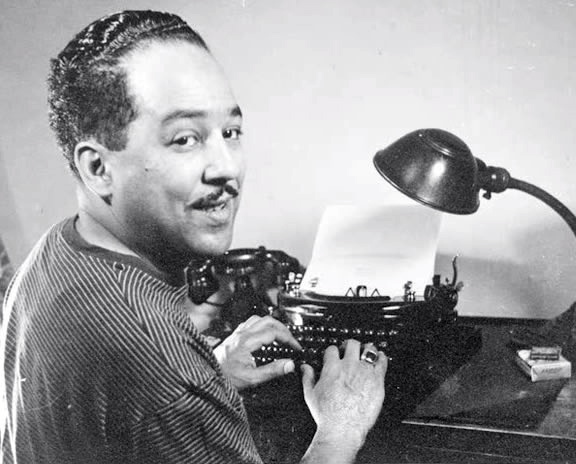Hughes left huge mark on American poetry

February 3, 2021
“So will my page be colored that I write? Being me, it will not be white. But it will be a part of you, instructor. You are white. Yet a part of me, as I am a part of you. That’s American. Sometimes perhaps you don’t want to be a part of me. Nor do I often want to be a part of you. But we are, that’s true! As I learn from you, I guess you learn from me although you’re older, and white and somewhat more free. This is my page for English B.”
Those are the words of Langston Hughes, America’s most famous African American Writer.
James Mercer Langston Hughes was born on February 1 of 1902, in Joplin, Missouri. Hughes moved around a lot as a child. He was first living with his parents, who divorced when he was young. He then moved in with his grandmother, who raised him until he was 13 years old, then he went to go live with his mother and her spouse in Lincoln, Illinois. A couple of years later the family would then settle in Cleveland, Ohio.
Hughes wrote his first poem when he was living in Lincoln Illinois. He attended Columbia University, but dropped out after one year to travel and write. He would visit many places like New York, Spain and even Paris. All this time he was still learning, developing, and publishing his poetry.
In 1920, Hughes published The Negro Speaks of Rivers which gained a lot of recognition because it was in The Crists magazine, which was popular at that time. He then began to write many famous novels and poems like I, Too, The Weary Blues, Let America be America Again, and Montage of a Dream Deferred.
Not only was Hughes a writer, he was also one of the most famous innovators of the then-new literary art form called jazz poetry. He wrote a famous piece called the Negro was in vouge which gained worldwide reconision.
Sadly, on the 22nd day of May in 1967, Hughes died of prostate cancer in New York City.
Hughes did many great things in his lifetime, but his most major accomplishments were the 1930 Guggenheim Fellowship Award for Creative Arts, the 1954 Anisfield-Wolf Book Award for Fiction, the 1960 Spingarn Medal, and even after his passing Hughes won the 2005 Quill Award for Poetry.
Langston Hughes is one of America’s most valued African Americans. His work was so revolutionary that it’s still being read and taught in schools today. He started writing to get his voice and message out, and that’s exactly what he did.
“What happens to a dream deferred? Does it dry up like a raisin in the sun?… Or does it explode?”
–Langston Hughes












